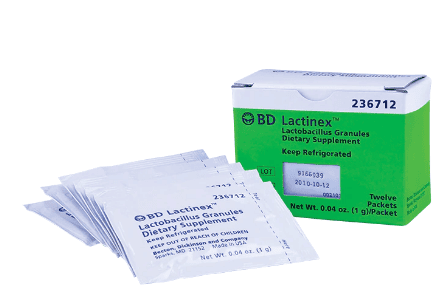Yogurt is high in protein and calcium. It is frequently recommended as a food to include in a healthy diet. However, is it safe to eat yogurt if you have gastrointestinal problems?
1. Ingredients in Yogurt
Tarts, ice cream, and yogurt are popular treats in many cultures. They are a blend of sweet and sour flavors. The fermented milk product is made by heating milk and adding the microorganisms Lactobacillus bulgaricus and Streptococcus thermophilus, which convert the milk sugar lactose into lactic acid. This gives yogurt a sour taste and creamy texture.
So, is eating yogurt healthy for your stomach? The average 8-ounce container of plain yogurt contains:
- 138 calories.
- 7 grams of fat.
- 8 g of protein.
- 11 g of carbs.
- 4.8 g of saturated fat.
- 21 percent of the daily value (DV) for calcium.
- 35% of the DV for vitamin B12.
You might notice that Greek yogurt tastes a little creamier than regular yogurt. That's because Greek yogurt goes through an extra straining phase to remove more liquid, known as whey, which contributes to its creamier texture. However, this extra step alters the nutrients of Greek yogurt. An 8-ounce container of Greek yogurt:
- 220 calories.
- 11 grams of fat. 20g of protein.
- 9 grams of carbohydrates.
- 5.4 g of saturated fat.
- 17 percent of the daily value for calcium
- 71% of the DV for vitamin B12.
Greek yogurt has more calories, fat, and protein but less calcium than normal yogurt. You should have known whether or not eating yogurt is healthy based on its nutritional content.

2. Why does eating yogurt induce stomach discomfort?
2.1. Will Greek yogurt make you bloated?
It could be lactose. Milk and other dairy products include lactose, a carbohydrate. People who are lactose intolerant lack the enzyme required to break down carbohydrates. This results in abdominal pain, bloating, and diarrhea when they consume dairy products.
While fermentation breaks down the majority of the lactose in milk, some may remain. If you are lactose intolerant and yogurt causes bloating, you should consider taking an enzyme supplement before eating it. Alternatively, consider switching to a sugar-free yogurt brand.
2.2. Chemical sweeteners can produce gas in the stomach
You should be aware that artificial sweeteners in yogurt might cause gas and bloating. Artificial sweeteners can also cause laxative effects, such as gas, bloating, and diarrhea.
These unpleasant side effects are frequently produced by the residual portion of dairy byproducts, such as yogurt. This is because the sugar gets digested and causes diarrhea. It induces diarrhea by pulling more water into the intestines. Tagatose and lactose-based sugar alcohols are two common sweeteners that pose major difficulties.
Common sugar alcohols that produce gas and bloating include xylitol, sorbitol, and mannitol. In addition, five additional sugar alcohols produce gas. These include isomalt, maltitol, lactitol, erythritol, and hydrogenated starch hydrolysates.

2.3. Probiotics Can Cause Bloating in the Stomach.
Friendly bacteria in yogurt have been found to have positive effects on digestion. This enhances an individual's digestion as well as their overall health.
However, when yogurt produces health issues, the human system becomes unbalanced. Probiotic supplementation may cause bloating in those who have greater intestinal abnormalities. Bloating occurs after eating because all of the bacteria in the stomach are working together to maintain equilibrium.
As a result, an imbalance of probiotics can be a major cause of bloating and gas in the gut. As a result, alterations in the gut microbiota can cause a kind of bacteria to produce increased gas and bloating after eating. As a result, probiotics are highly effective at reducing bloating.
2.4. Other Added Ingredients Could Cause Bloating Why Does Some Yogurt Cause Bloating?
It could be due to the added ingredients. If you look attentively, you'll find that yogurt comes in a range of flavours. In addition to fruit yogurts, there are yogurts with mix-ins such as cookie crumbles and salted caramel cookies.
If these yogurts produce bloating after eating, it could be due to sugar. Sugar is a highly concentrated sweetener that can cause stomach pain, bloating, and diarrhea. Fructose is especially problematic because it can be derived from fruit or fruit juice that is used to flavor yogurt. High-fructose corn syrup can potentially be problematic for persons who are fructose intolerant.

3. How to Avoid Stomach Trouble When Eating Yogurt?
3.1. Use yogurt to reduce bloating.
To reduce bloating, you should be aware of the meals that make you bloated. However, it's interesting and surprising to learn that yogurt is one of the causes of stomach bloating and gas. On the contrary, yogurt also reduces stomach bloating.
As previously stated, stomach bloating while eating yogurt can be caused by lactose intolerance in yogurt or other ingredients. They do, however, benefit greatly from the good microbes in yogurt, which dramatically alleviate bloating.
When you eat meals that induce stomach bloating, eating yogurt in between can help lessen the bloating and flatulence. According to some research, people can find ways to avoid future bloating. To avoid the negative effects of yogurt, opt for low-fat varieties or avoid those containing lactose and bloating-causing meals.
To reduce stomach gas, one must first address bloating. This can be accomplished by selecting foods at the proper moment. Consuming plain yogurt at the appropriate time can help to minimize bloat. Eliminating bloating aids in the normal digestion of all foods consumed by the body. It is best to avoid consuming foods that cause bloating.
3.2. Anti-bloating drugs can help improve symptoms
If you are concerned about your bloating, consult your doctor about treatments that can help alleviate the discomfort immediately. According to the American Academy of Family Physicians, bloating can be relieved fast using drugs that lower gas in the digestive tract.
Interestingly, probiotics, which include the bacteria in yogurt that aid in fermentation, may relieve gas and bloating. This is according to an October 2014 review and meta-analysis published in the American Journal of Gastroenterology. However, it is unclear which probiotics are most effective for the study, and additional research is required.
So, how can you reduce bloating after consuming yogurt within 24 hours? You do everything you can to avoid additional bloating. This could involve avoiding yogurt and other foods that cause you problems, reducing your intake of fizzy beverages, and not chewing gum.
In conclusion, we can see that high-fat yogurts (such as Greek yogurt) and yogurts with flavor ingredients can be damaging to your health. They induce bloating and gas, which interfere with food digestion in the stomach.

To minimize bloating, we should limit the use of artificial sweeteners and flavors in yogurt. Some of this could be due to the probiotics in yogurt, which can induce bloating and gas.
However, if you have bloating, chronic bloating, or bloating even while not eating yogurt, it could be a warning sign of your present health situation. At this point, you should consult a doctor for an evaluation to determine the exact problem.
Please dial HOTLINE for more information or register for an appointment HERE. Download MyVinmec app to make appointments faster and to manage your bookings easily.













